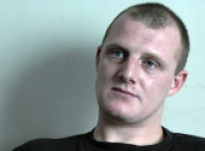Paul - Interview 38

More about me...
However, Paul is very supportive of clinical trials and research to help other young people with diabetes in the future and of course to help his son. If his son wants to take part in future trials he will fully support him.
Clinical trials are important to help improve understanding of how treatments work and how people react to treatments. If it could help find a cure for diabetes that would be amazing says Paul.
Clinical trials are important to help improve understanding of how treatments work and how people react to treatments. If it could help find a cure for diabetes that would be amazing says Paul.
Well, yes, because in the long run, you know, it’s better for the people, better for all diabetics really. Because they, you know, with the research they’d be able to control it more. And, as I say, one day they could have a cure, maybe can get rid of it. Which would be a, would be an amazement but be brilliant.
The trial was to monitor Liam's diabetes, how he responded to the insulin he was given, and to monitor how he coped with the changes to his diet.
The trial was to monitor Liam's diabetes, how he responded to the insulin he was given, and to monitor how he coped with the changes to his diet.
And do you know what the purpose of the trial was? Do you know why you were invited?
At the time of his son's diagnosis there was a lot of information to take in, but the nurses were really helpful and supportive and this was reassuring for Paul.
At the time of his son's diagnosis there was a lot of information to take in, but the nurses were really helpful and supportive and this was reassuring for Paul.
The children’s hospital. They just said to me it would be good for research and obviously to help my son Liam. So we went ahead with it.
Paul remembers there being different groups, but can't remember what they were, he was happy for his son to take part whichever group he was allocated to.
Paul remembers there being different groups, but can't remember what they were, he was happy for his son to take part whichever group he was allocated to.
Taking part in clinical trials helps improve treatment, but his son would have the final decision.
Taking part in clinical trials helps improve treatment, but his son would have the final decision.

